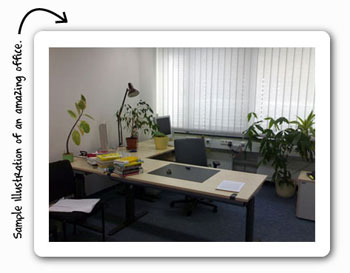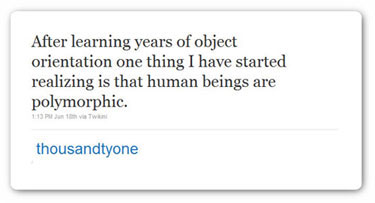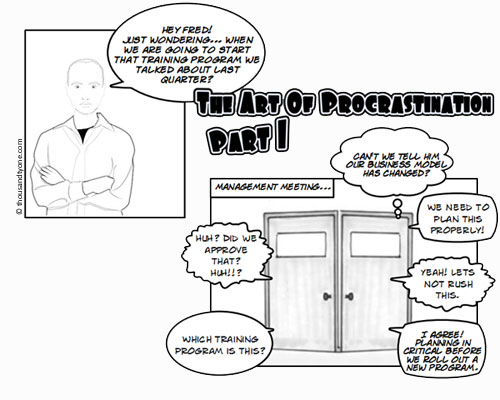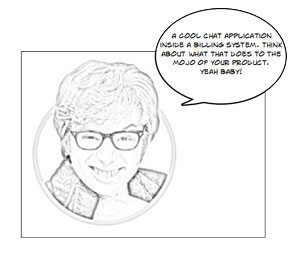During my work at a client, who for the purposes of this post, I shall refer to as Multiplitaxion Inc, I saw an amazing example of management and HR policies, backfiring in ways that no-one had expected them to backfire.
Multiplitaxion Inc, was an amazing place to work at. Even for me as an outsider or a consultant who was just visiting, the folks at Multiplitaxion Inc were not just nice, they were super nice. They got me my very own personal cabin, gave me printer access and even had a name plate with my name printed even though I was just going to work with them for a few months.

Multiplitaxion Inc, happened to be one of those places where a group of like minded people gather, not just to work but to live a like minded life. These were bunch of rather amazing oil engineers and software engineers who worked for twelve to thirteen hours a day. Walk into Multiplitaxion Inc at seven in the evening and chances were that you would see a bunch of engineers flocked together trying to solve a problem.
During my stay at Multiplitaxion Inc one thing I noticed was that people hardly ever took leaves. During my first three months of stay, no-one from my team ever took a leave.
This story however, begins on a bright sunny day when someone high up in the pecking order who had access to the time card logs and no real work to do decided to glean though the logs and discovered that people were coming really late to office. Soon strings were pulled and decisions were taken for the best interest of the organization.
Emails went out informing the employees that folks entering office after ten would be marked absent for the day and that people were 'requested' to be at office on time. A policy that was supposed to put some sense into office timings and increase employee productivity. A policy that started backfiring on the very first week on which it was imposed.
Turns out, Jack, who happened to be one of the youngest and the brightest programmers in our team, stumbled on a scenario which caused the policy to backfire on the very week in which when it was imposed. One first morning, as Jack prepared to leave from office, his eyes fell on the watch and seeing that it was nine-thirty already, Jack realized that there was no way he was going to cover a one hour drive and make it to office by around ten.
Jack, gave the situation due thought and given the fact that he had a ton of leaves cumulated with him because he never took any, decided to go for the idea of taking the day off. From that point on, the idea spread like wildfire. Folks who had never taken leaves in years, suddenly started going missing. Passion that had once driven folks to come to office, turned into confirmation towards rules. Leaves that were never utilized were now used up rather quickly.
A policy that was designed to make people spend more hours at the workplace turned into a policy that made them spend the least number of hours that they had spent in office during their entire careers.
What had happened here is very articulately describes by Dan Ariely in his book Predictably Irrational. Dan explains:
My good friends Uri Gneezy (a professor at the University of California at San Diego) and Aldo Rustichini (a professor at the University of Minnesota) provided a very clever test of the long-term effects of a switch from social to market norms. A few years ago, they studied a day care center in Israel to determine whether imposing a fine on parents who arrived late to pick up their children was a useful deterrent.
Uri and Aldo concluded that the fine didn't work well, and in fact it had long-term negative effects. Why? Before the fine was introduced, the teachers and parents had a social contract, with social norms about being late.
Thus, if parents were late—as they occasionally were—they felt guilty about it—and their guilt compelled them to be more prompt in picking up their kids in the future. (In Israel, guilt seems to be an effective way to get compliance.) But once the fine was imposed, the day care center had inadvertently replaced the social norms with market norms.
Now that the parents were paying for their tardiness, they interpreted the situation in terms of market norms. In other words, since they were being fined, they could decide for themselves whether to be late or not, and they frequently chose to be late. Needless to say, this was not what the day care center intended.
In the same book Dan goes deeper into the concept of why this fine did not work using the idea of two worlds that each one of us live in. He explains:
As Margaret Clark, Judson Mills, and Alan Fiske suggested a long time ago, the answer is that we live simultaneously in two different worlds one where social norms prevail, and the other where market norms make the rules. The social norms include the friendly requests that people make of one another. Could you help me move this couch? Could you help me change this tire? Social norms are wrapped up in our social nature and our need for community.
They are usually warm and fuzzy. Instant paybacks are not required: you may help move your neighbor's couch, but this doesn't mean he has to come right over and move yours. It's like opening a door for someone: it provides pleasure for both of you, and reciprocity is not immediately required.
The second world, the one governed by market norms, is very different. There's nothing warm and fuzzy about it. The exchanges are sharp-edged: wages, prices, rents, interest, and costs-and-benefits.
Such market relationships are not necessarily evil or mean—in fact, they also include self-reliance, inventiveness, and individualism—but they do imply comparable benefits and prompt payments. When you are in the domain of market norms, you get what you pay for—that's just the way it is.
Dan holds the opinion that when you take a social norm and try to replace it with a market norm you typically, for lack of a better word, f@#ck things up. He explains this much more articulately that I would be able to describe it, using what happened with the fining incident in Israel:
But the Real story only started here. The most interesting part occurred a few weeks later, when the day care center removed the fine. Now the center was back to the social norm. Would the parents also return to the social norm? Would their guilt return as well?
Not at all. Once the fine was removed, the behavior of the parents didn't change. They continued to pick up their kids late. In fact, when the fine was removed, there was a slight increase in the number of tardy pickups (after all, both the social norms and the fine had been removed).
This experiment illustrates an unfortunate fact: when a social norm collides with a market norm, the social norm goes away for a long time. In other words, social relationships are not easy to reestablish. Once the bloom is off the rose—once a social norm is trumped by a market norm—it will rarely return.
For the passionate software and rig engineers who worked at Multiplitaxion Inc, coming to office in the morning and working passionately for problems that were thrown their way was a social norm. What the time-policy at Multiplitaxion Inc did, was to take the social norm and mix market elements to it.
What Multiplitaxion Inc did with this policy, in the words of the book was much like, paying your mother-in-law for a fantastic thanksgiving party or for that matter paying your wife for her love.
Mixing social and market norms usually creates odd situations for everyone involved. If you lead a team or run an organization, it is hugely important that you realize the social norms that exist within your organization. There are things that people might be doing as a part of their existence in the 'social world' and the moment you try to reward or punish them using market norms, you are likely to create awkward situations and policies that backfire in ways you never thought.
Go ahead, use social norms heavily in your organization and when they are in place, don't ever try to replace them with market norms, because if you do, you just might f@#ck things up.








Comments are closed.